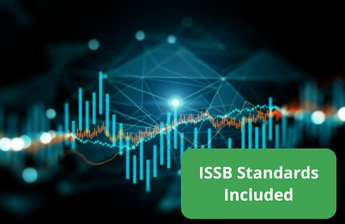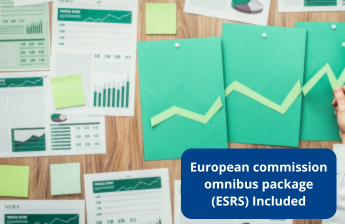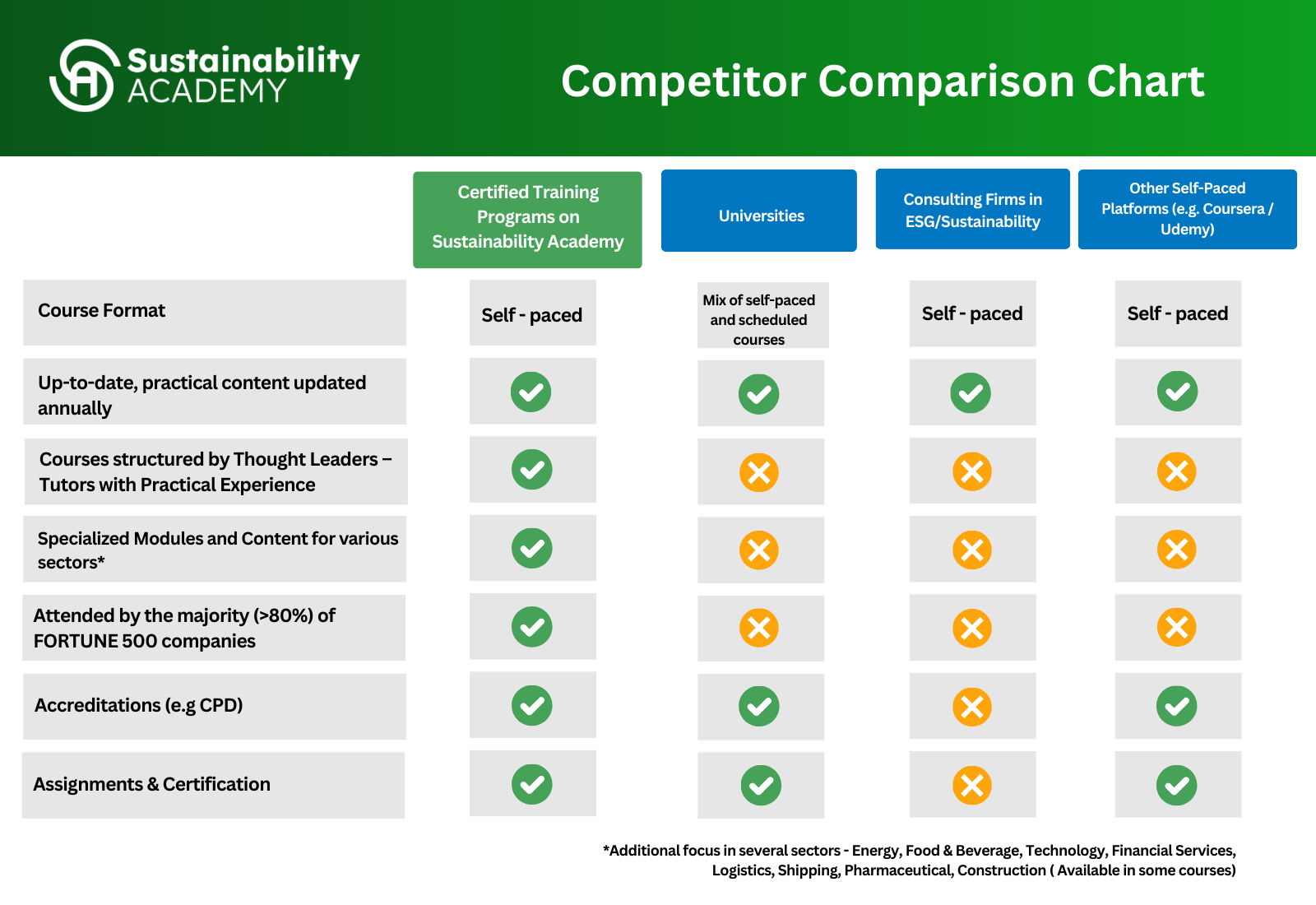
Online Certificate on SASB & TCFD Reporting-Alignment with IFRS S1-S2

590,00 $
Online Certificate on SASB & TCFD Reporting-Alignment with IFRS S1-S2

The Online Certificate on SASB & TCFD Reporting – Alignment with IFRS S1 & S2 is designed to help the participants acquire or enhance their competency to understand the requirements of the SASB Standards and the TCFD recommendations. It is focused on the acquisition of knowledge of applying the SASB Standards, as well as reporting on the organization’s climate related risks and opportunities based on the TCFD recommendations. The course has been updated with the recently issued ISSB Standards: IFRS S1 and IFRS S2, and provide the participants with an understanding of how these new standards streamline and strengthen the integration of sustainability into corporate reporting practices.
The course is accredited by CPD.
About the course
The course will help you understand
- The role of SASB and why it matters to investors
- The importance of the SASB Standards and how to use them
- How to develop and build a climate change scenario
- The TCFD guidelines and hot to report on them
- ISSB Standards
- Transition to ISSB & IFRS
What you get from the course
- Comprehensive introduction and practical knowledge on SASB, TCFD and IFRS
- Case studies, examples and videos
- Official SASB studying guide that will help you apply for the FSA credentials
- Certification by CSE, accredited by CPD
- Badge issued by Credly

Why choose Sustainability Academy Certified Courses?
- Offer a unique Certification accredited by CPD in an affordable manner trusted by global Fortune 500 companies and global accounting firms for their staff education
- Content created by Sustainability thought leaders, professors and trainers with practical experience in the field of sustainability
- Self-paced Courses that can be completed anytime within 45 days
- Up-to-date content revised on annual basis that includes new legislations and trends based in field research
- Joined by thousands of learners from 90 countries, including Sustainability professionals, graduates and entrepreneurs from various sectors
- Receive your certification and badge via Credly, which is valid for one year. You can share your badge directly from Credly to LinkedIn, Twitter, and Facebook; over email; embedded in a website or in your email signature.
Course Modules
Introduction to SASB
- The need for SASB Standards
- Connection between SASB and ESG
- Corporate Adoption of SASB Standards
- SASB and investors
- Corporate Adoption of SASB Standards
- GRI and SASB
Trainees Feedback
Users also buy together

Online Certificate on Carbon Reduction and Net Zero Strategies

Online Certificate on Sustainability (ESG) Reporting
Do you need more information?

Head of Course Development Team

Nikos Avlonas
Nikos Avlonas is founder and President of the Centre for Sustainability & Excellence (CSE) a global Sustainability Strategic advisory and Training organization with activities in North America, Europe, MENA and Asia regions. Nikos has been distinguished as one of the “Top 100 Thought Leaders in Trustworthy Business Behavior” by Trust Across America, an organization dedicated to promoting trustworthy business behavior in 2010.
Our Accreditations & Partnerships









